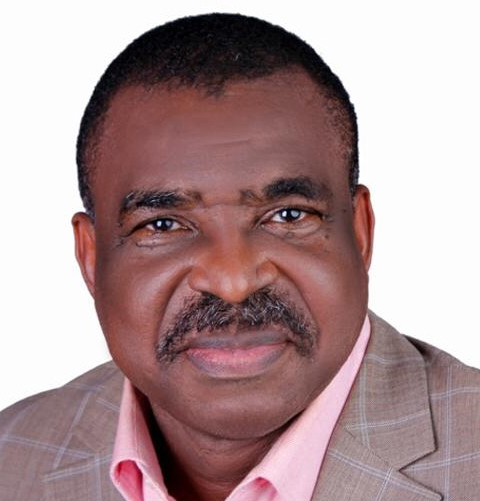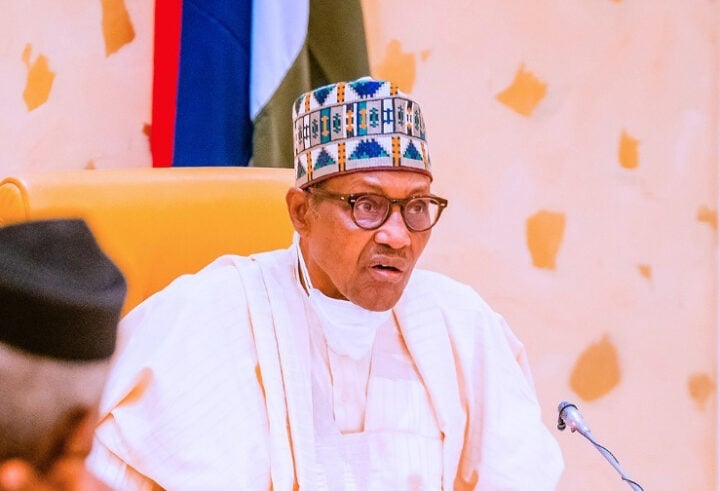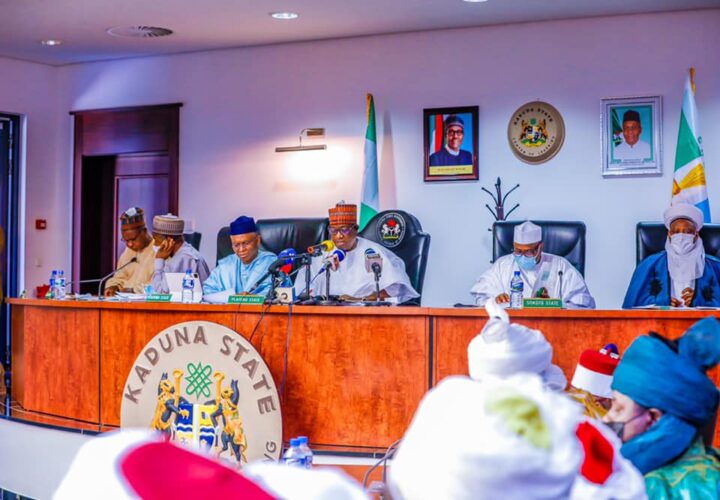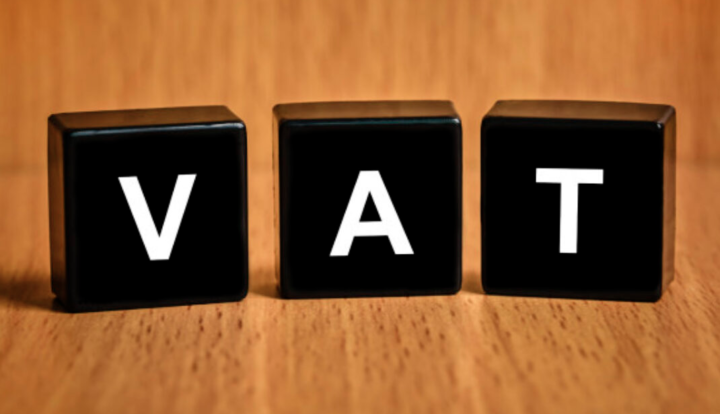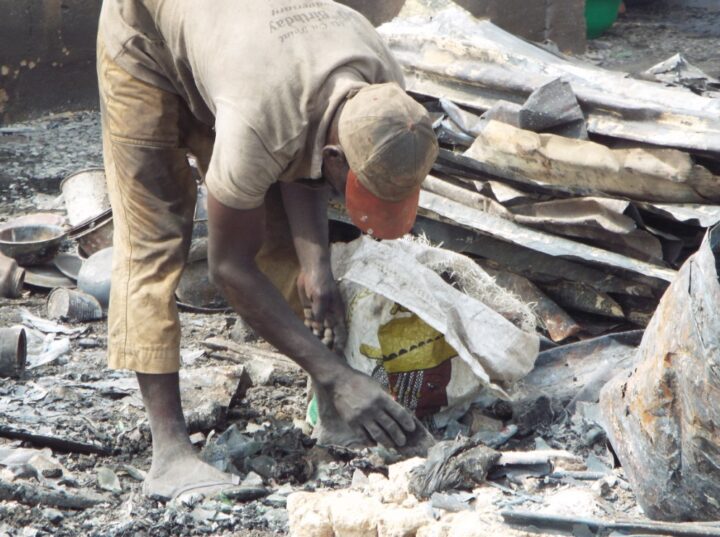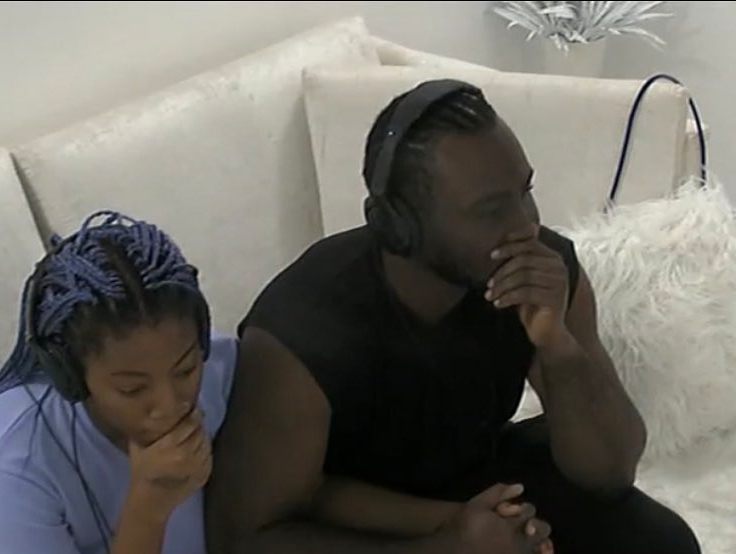The balance in the ethnicity of Nigerians recently appointed as members of the boards of both the Nigerian National Petroleum Corporation, NNPC, and Economic and Financial Crimes Commission, EFCC by President Muhammadu Buhari underscores the fact that after all, building a leadership team that reflects the inclusiveness of other ethnic stakeholders in Nigeria is not an anathema or rocket science.
It may be recalled that amid protests by Niger Delta stakeholders against some unsatisfactory contents of the Petroleum Industry Act, PIA, President Buhari returned from his overseas trip to the UK to sign the controversial bill into law on Monday, 16th August 2021.
Amongst many other issues, Niger Deltans were and are still against the provision of a mere 3% for host communities instead of the 10% that they demanded and the 5% proposed by the House of Representatives.
Their demand for 10% is underscored by the high level of degradation on the environment and related challenges that host communities face in the cause of oil/gas exploration activities in the Niger delta.
Advertisement
The aggrieved Niger Deltans were riled by the fact that whereas only 3% equity was allotted to them, 30% of the profit from oil/gas business generated by the NNPC from wells in the south was approved for exploration of frontier basins which are basically in the north. In a very ethnic and religious-polarized Nigeria, everyone is on edge, hence the acrimony.
But after the signing of the bill into law, the protests died down probably with the underlining belief that half bread is better than none. More so, the bill had been on the drawing board without passage since it was first proposed during the administration of President Olusegun Obasanjo, 1999 – 2007.
Remarkably, when President Buhari sent the list of the nominees for the board of NNPC Incorporated (which is part of the implementation of the PIA) to the Senate for approval, there was no protest. That is perhaps simply because the federal character principle enshrined in the 1999 constitution was deemed to have been adhered to.
Advertisement
The proposed chairman of the board is Ifeanyi Arurume, an Igbo man, the tribe that is deemed to have been excluded from governance under the current administration – a factor fuelling the destructive and disruptive separatist movements across southern and north-central Nigeria.
Other appointees to the board of NNPC Incorporated are Mele Kyari, Chief Executive Officer, and Umar I. Ajiya, Chief Financial Officer, Dr Tajudeen Umar (North East), Mrs Lami O. Ahmed (North Central), Mallam Mohammed Lawal (North West), Senator Margaret Chuba Okadigbo (South East), Barrister Constance Harry Marshal (South-South), and Chief Pius Akinyelure (South West).
Following closely on the heels of that positive development, on Tuesday 21, September, President Buhari similarly sent to the senate the list of nominees for the board of the Economic and Financial Crimes Commission, EFCC. They are George Ekpungu as Secretary (Cross River); Luqman Muhammed (Edo); Anumba Adaeze (Enugu); Kola Adesina (Kwara); and Yahaya Muhammad (Yobe) as members of the board.
Again, the membership of that agency must have been adjudged as balanced, hence unlike in the past, there has been no hue and cry against the composition of the board with Abdulrasheed Bawa as chairman.
Advertisement
Just as l was contemplating on whether the two actions were enough to form the opinion that a pattern of inclusiveness is being established, president Buhari dispatched another letter to the upper legislative chambers via the senate president, Ahmed Lawan requesting that the NNPC board membership be expanded from 9 to 13 in other to accommodate people from the other zones left out. That action confirmed to me that president Buhari was actually being sensitive to ethnic and regional balancing.
So, suddenly, in the twilight years of President Buhari’s administration, inclusiveness has become a guiding principle and centre-piece of public administration in Nigeria; which is amazing.
In the event that I am proven to be correct in my assessment, then our leaders know exactly what the trouble with Nigeria is — exclusiveness of government to the kinsmen and women of the man at the helm of affairs in Aso Rock Villa.
And the exclusion of members of other ethnic groups in key public offices. It is also known as the marginalization of other ethnic groups and favouritism of the kith and kin of an incumbent president, referred to as nepotism. Although the destructive fallouts of the leadership approach outlined above are obvious, ethnocentric leaders persist in the obnoxious practice.
Advertisement
It is rather unfortunate that it is the insensitivity to the delicate nature of our union-ethnic and religion-wise, that has triggered the national crisis such as the current threat of secession by the two other major ethnic groups — Igbos and Yorubas that make up the Nigerian triumvirate with the Hausa/Fulani as the third leg of the tripod on which Nigeria has been standing as a country, since the 1914 amalgamation of the northern and southern protectorate of the British empire.
In assessing the prickly relationship between the Igbos and the extant administration in the past six years of president Buhari being at the helm of affairs in Aso Rock Villa, there have been two significant events that have marked the lowest and highest points in the relationship between Mr President and the Igbo nation. Without discountenancing the negative effects of the ill-advised declaration of IPOB as a terrorist group by the federal government, the lowest point has been when president Buhari referred to the Igbos as a dot in the circle in a post which he made on Twitter. It was so offensive (as it contains all elements of a hate speech) that the microblogging platform was compelled to delete the comment in the manner that it had also deleted former US president, Donald Trump’s vile speech.
Advertisement
Amongst the highest points in the topsy-turvy relationship has been during his campaign for re-election in 2019 when he attempted to bait the Igbo nation into voting for him by throwing them an olive branch via the payment of the sum of about N50 billion (insurance claim) to ex-servicemen, of which the numerous Igbo men/women who fought in the unfortunate civil war (1967 – 1970) are the major beneficiaries.
President Buhari’s strategists must have felt that with the Igbos reputation for unbridled love of money, they may be swayed by the largesse. But the gambit fell flat as the charm offensive did not earn president Buhari any significant votes in Igbo land in the 2019 election as envisaged.
Advertisement
Nevertheless, the recent one-day official visit to Imo state by president Buhari is the other high point. At least it has yielded the Igbos the position of chairman of NNPC incorporated, (Ararume is a good friend of Uzodinma) just as it has also given them a seat on the board of the EFCC.
Although, they are basically more of ceremonial positions as the chief executive officers of the NNPC and EFCC have direct reporting lines to the president, at least having representatives in those boards would give the Igbos a sense of belonging in the government of Nigeria. And that gesture is bound to have a salutary impact on the psychology of the average Igbo, having been shut out in the past six years by being denied their well-deserved place in the top echelon of government.
Advertisement
The same applies to the recent appointment of an Igbo to the board of the EFCC — an anti-graft agency of government hitherto dominated by the Hausa/Fulani to the chagrin of other ethnic nationalities.
With these gestures of inclusiveness of other members of the union, particularly the Igbos, in governance which has the capacity to thaw the ice in the frosty relationship between the federal government under President Buhari’s watch and the Igbos, President Buhari’s legacy may not be so unappealing by the time he exits Aso Rock Villa in 2023.
Especially, if the rapprochement is sustained with other gestures reflecting a more broad-minded approach in governance by president Buhari as opposed to governing from the narrow prism of ethnic and religious calculations.
As l have stated in the past, posterity will applaud the leaders of Nigeria that embrace inclusiveness and frown at those that trample it.
Obviously, by the current efforts of making respect for the federal character principle (which appeared to have been thrown to the dogs) the centerpiece of his administration, (although in its wee hours) President Buhari clearly does not desire that posterity judges him harshly.
In 2016, barely a year after the incumbent president mounted the saddle, I wrote and published an article in the mass media titled “The Federal Republic Of Inequality?”
In the opinion piece, l tried to prick Mr President’s conscience by reminding him gently that the shade and pattern of his appointments of Nigerians into public offices were in conflict with the letter and spirit of the federal character principle enshrined in the 1999 constitution and for which a commission, Federal Character Commission, FCC was set up to enforce.
But due attention was not paid to my prodding of Aso Rock Villa for more inclusiveness in governance. Had the president inclined his ears to mine and other pleas for a more broad-minded governance system, the current threat of secession by the Igbo and Yoruba nations would not have arisen. But it is what it is.
So, like a prophetic utterance or an apocalypse manifesting a few years after, Nigeria’s socio-political atmosphere, since 2016 when l wrote the article, has become very toxic with the southern half of the country and perhaps part of north-central threatening to decouple from the country, Nigeria.
Starkly, it is the lack of inclusiveness of other members of the Nigerian union in governance that is powering the separatist movements in Igbo and Yoruba land, via IPOB and Oduduwa nations agitators. Hopefully, the current more inclusive proclivity of the authorities in Aso Rock Villa would assuage the anger of the separatists.
At this juncture, permit me to reproduce a copious excerpt from
My 2016 article titled:
“Federal Republic of Inequality “published June 26, 2016.
It goes thus:
“Our country comprises of about 250 tribes or ethnic nationalities with the main ones being Hausa/Fulani, Yoruba, Igbo, Kanuri, Ijaw, Nupe, Kalabari, Tiv, Ijebu, Igarra, Urhobo, Jukun, Idoma, Ika, Ibibio, Edo, etc.
In the inaugural speech of President Muhammadu Buhari on May 29, 2015, he was famously quoted as saying “I belong to everyone, I belong to no one”.
That very welcoming and reassuring remark, which resonated very well with most Nigerians, became a quotable quote that featured in myriads of comments in the mainstream and online media, just as it also became a talking head in torrents of radio and television shows. The reason the quote was significant is quite simple.
In the run-up to the 2015 general elections, campaign rhetoric vaunting ethnic and regional sentiments were so rife that Nigeria became too polarized in such a manner that the Hausa/Fulani in the northern parts of Nigeria were stacked behind, ex-military head of state, Muhammadu Buhari, who is from the Hausa/Fulani stock, while the Igbos, ljaws and other minority tribes in the southeast and South-South part of Nigeria, queued up behind the then incumbent president, Goodluck Jonathan, who is Ijaw, and one of their own.
The Yorubas in the South-West, who has had a shot at the presidency from 1999 to 2007, when former army General, Olusegun Obasanjo transited from prison to presidency, became the bride-to-be wooed by both the political forces from the north and south-south parts of Nigeria.
In the end, the Yorubas aligned with the north through acceptance of the Vice President slot which the acclaimed leader of the Yorubas, Bola Tinubu, former governor of Lagos State, conceded to a man of impeccable character, an evangelical Pastor, his long-time ally and former attorney general of Lagos State, Yemi Osinbajo.
Prior to his success at the 2015 polls, president Buhari had tried and failed to successfully clinch the presidency in 2003, 2007, and 2011 but on each of those occasions that he lost, Buhari swept the votes in the core northern states like, Katsina, Kebbi, Zamfara, Sokoto etcetera, sometimes garnering about 12 million votes.
Even with the Yoruba’s vote in the kitty, Buhari still needed the votes from the southeast and south-south to fulfil the constitutional requirements that votes must be garnered from all parts of Nigeria for a candidate to be deemed to have won.
This is to ensure that a situation whereby a particular candidate from an ethnic group with superior numerical strength, does not ride into the presidency relying only on votes from only his/her kith and kin.
That’s how Rotimi Amaechi, former governor of Rivers state, the heart of South-South, now minister of transport, and Rochas Okorocha, incumbent governor of Imo state, the ground zero of Igbo land, became the game-changers.
With their support, substantial votes in rivers and Imo states were brought into Buhari’s kitty that already had the Hausa/Fulani and Yoruba votes, and the rest, as they say, is history.
Politics is a game of strategy and democracy is also about the numbers of people that politicians are able to swing to their side, which justifies the political dictum, the majority carries the vote. In 2015, Buhari reached out and built bridges across many deserts and rainforests into Yoruba land as well as crossed many bridges and rivers into Igbo and lkwere/Kalabari mangroves and creeks and he reaped the reward of the hard work by becoming Nigeria’s number one citizen. Now, it’s payback time.
In politics, as in business, settling lOUs is usually a very testy experience. In what many thoughts was a Freudian slip like the one famously made by British prime minister, David Cameroon about Nigeria being a fantastically corrupt country, in the wake of the anti-corruption summit in London recently, President Buhari during an interactive session with some Nigerians and Americans, on the sideline of his visit to the USA, stated that he cannot be expected to treat the 95% who voted for him in the north equally with the less than 5% who voted in the south.
As expected in a multicultural multi-ethnic and multi-religious society, the comment got twisted and dissected with all manners of bias on online media platforms. Unsurprisingly, many members of the elite commentariat also took Mr President upon the remark from the optics of the numerous ethnic and other primordial sentiments, and l thought the high level of condemnation would challenge Mr President to offer some clarifications but that was not the case.
With the public hue and cry about appointments so far made into executive positions, it would appear that Mr President is sticking to his guns literarily to reward mainly voters from his home base by skewing appointments in their favour.
Check out the list of appointments into sensitive and critical security, safety, intelligence and elections sectors under the current regime making the rounds in the social media:
(1) Inspector General of Police – North
(2) Director General of Directorate of State Security Service, DSS – North
(3) Chief of Army Staff – North
(4) Chief of Naval staff – North
(5) National Security Adviser, NSA – North
(6) Chairman of Economic and Financial Crimes Commission, EFCC – North
(7) Head of Immigration Service – North
(8)Head of Customs Service – North
(9) Head of Civil Defense Corps – North
(10) Defence Minister – North
(11) Controller of Prisons – North
(12) Chairman of INEC – North
Hitherto, even under military rule, the positions listed above were spread amongst people from the 250 ethnic nationalities earlier listed particularly amongst the three major groups, Hausa /Fulani, Yoruba, and Igbo.
If the recent interview, claimed to have been granted Hausa service of the BBC is to be believed, Mr President is making a case that appointment of mostly close associates from his ethnic nationality into public offices in disregard of the provision by the Federal Character Commission, FCC is justified by the constitution, but is it?
In response to the allegation, below is a transcription of what Mr President is believed to have said on the radio program:
“If they will do justice to me, as an elected Nigerian president, let them look at the constitution (that) a Nigerian president works with; there are people who will closely work with me that don’t need to be taken to the senate’’ Mr President is very correct on that count.
‘‘lf l select people whom l know quite well in my political party (with) whom we came all the way right from APP, CPC, and APC, and have remained together in good or bad situations; the people I have confidence in and I can trust them with any post, will that amount to anything wrong?”.
The snag here is that the men heading the security and strategic arms of government listed earlier are supposed to be professionals, not card-carrying members of any political parties hence the last part of Mr President’s justification does not gel with the provision in the 1999 Nigerian constitution. In any case, I suspect that the statement was made when he appointed Babachir David Lawal as Secretary to Government of the Federation (SGF), even though it is now being presented as if it is in response to the recent appointments.
However, since Mr president did not specifically mention the section of the Nigerian constitution that empowers him to be tribalistic in appointments, he must have obviously been misquoted by mischief makers, nevertheless, let’s take a cursory look at the act establishing the FCC, which is an entity constitutionally vested with the authority to ensure that a balance is maintained in appointments into federal government public and civil services amongst other functions.
Information on the website of the Federal Executive Body indicates that the Federal Character Commission, FCC was established by Act No 34 of 1996 to implement and enforce the Federal Character Principle of fairness and equity in the distribution of public posts and socio-economic infrastructure among the various federating units of the Federal Republic of Nigeria.
According to the provisions of the 1999 Constitution in Sections 14 and 153, “The composition of Government of the Federation or any of its agencies and the conduct of its affairs shall be carried out in such manner as to reflect the Federal Character of Nigeria and the need to promote National unity and also command national loyalty, thereby ensuring that there shall be no predominance of persons from a few states or from a few ethnic or sectional groups in that government or in any agencies”.
From the laws cited above, the grand norm guiding the principle of federal character is clear. With the tension between the executive and the legislative arms of government, rearing its urging head again, one can never tell what could become the ‘banana peel’ or Achilles’ heels of Mr President.
I personally do not believe that there is a compliance desk presently in Aso Rock Villa, otherwise, these political ‘blind spots’ could have been spotted from afar and avoided by Mr President whom l believe listens.
Here is my evidence that president Buhari listens:
During the campaign for the presidency, opponents dug up then presidential candidate, Buhari’s not too palatable record as a military dictator who convicted journalists like Nduka Irabor and Tunde Thompson retrospectively and authorized the execution of drug offenders with similarly backdated laws when he was head of state.
In an article titled “When a Public Mistake Requires an Old Fashioned Apology” which l wrote and published on the back page of Thisday newspaper and other mainstream and online media platforms, I suggested that as a leader, Buhari and his opponent, Goodluck Jonathan should apologize to Nigerians for their past mistakes.
None of the candidates heeded the advice at the time, but when Buhari later met Tunde Thompson, he reportedly personally expressed his regret even though he defended his actions at the time as being an inevitable decision and did not admit guilt, which was fair enough.
Amongst other demonstrations of the ability to be a listening leader, president Buhari who initially resisted the removal of fuel subsidy, later acquiesced with it; he was also against devaluing the naira but our currency is now floating and he threatened to apply deadly force in dealing with Niger delta militants, but he has similarly backed down, allowing the application of dialogue for peace to prevail.
To me, these are some of the critical milestones that signify accommodation of other views. So l will not join the list of critics classifying President Buhari as an autocratic leader.
Although the good gestures listed above do not quite net off the fact that pro-Biafra agitator Nnamdi Kanu, alleged security funds abuser, Sambo Dasuki, and fiery Shiite preacher, El Zazarkky as well as Femi Fani-Kayode, another accused security funds co-conspirator, are still incarcerated after being granted bail by law courts. It is hoped that very shortly, President Buhari’s humane spirit will be stoked for him to authorize the release of these men even on compassionate grounds.
According to recent reports in the media, Mr President reportedly complained that Nigeria is proving to be difficult to govern. Having admitted that there is too much stress involved in leading Nigeria, not adhering to the rules of fairness and equity ingrained in FCC law in the appointment of Nigerians into public offices to balance the ethnic and religious realities in the country, can only create more tension and subsequently more stress for him.
So why can’t President Buhari do the most equitable thing already stipulated in the 1999 constitution by spreading the appointments nationally and avoid more stress?”
The article above was written in 2016 and the situation has gotten much worse in the intervening period. As the essay eloquently testifies, it was barely one year into the administration of President Buhari, (to be precise, June 2016) that l identified the ominous signposts on the highway to perdition on which Nigeria is currently traveling at breakneck speed.
Had our leaders heeded the advice contained in that media intervention and elected to be more patriotic than pandering to centrifugal forces of ethnicity and religiosity, our beloved country would not be beset with the deluge of disorder posed by the multiple secessionist groups who appear to be hell-bent on fragmenting our country along the lines of the three major ethnic groups.
As the saying goes, it is never too late to make amends, and where there is the will, there is always a way.
If the current respect for federal character principles as enshrined in the 1999 statutes book is returning as the centerpiece of public policy administration under President Buhari’s watch, (as reflected by the palliative actions taken so far with respect to the formation of NNPC incorporated and the EFCC boards of directors ) then the review of the amended electoral act 2010 recently passed by the NASS and in which they failed to incorporate e-transmission of election results, maybe afoot. The optimism is underscored by the fact that the bill is yet to be assented to by President Buhari.
If the review of the amended electoral act 2010 to accommodate e-transmission of election results happens, (as is likely to be the case) then the two years or so remaining in the lifespan of this administration, may be sufficient time for President Buhari to make over his legacy that has so far been defined by the chaotic management of the political system-extreme poverty, the highest level of insecurity of lives and properties and the extreme polarization of the Nigerian society-avalanche separatist movements. For too long, Nigerians have been awaiting the CHANGE that the ruling party, APC promised during its campaign for votes in 2015 and reinforced as NEXT LEVEL in 2019.
Maybe, and just maybe, the change is about to happen and to sustain the momentum, the restructuring of the political system and establishment of state police proposed by the Nasir El-Rufai committee should be accepted and implemented by the ruling party, and president Buhari so that long-suffering Nigerians can truly see and feel positively the promised change.
Magnus Onyibe, an entrepreneur, public policy analyst, author, and development strategist is an alumnus of Fletcher School of Law and Diplomacy, Tufts University, Massachusetts, USA and a former commissioner in the government of Delta State. He sent this piece from Lagos.
Add a comment
